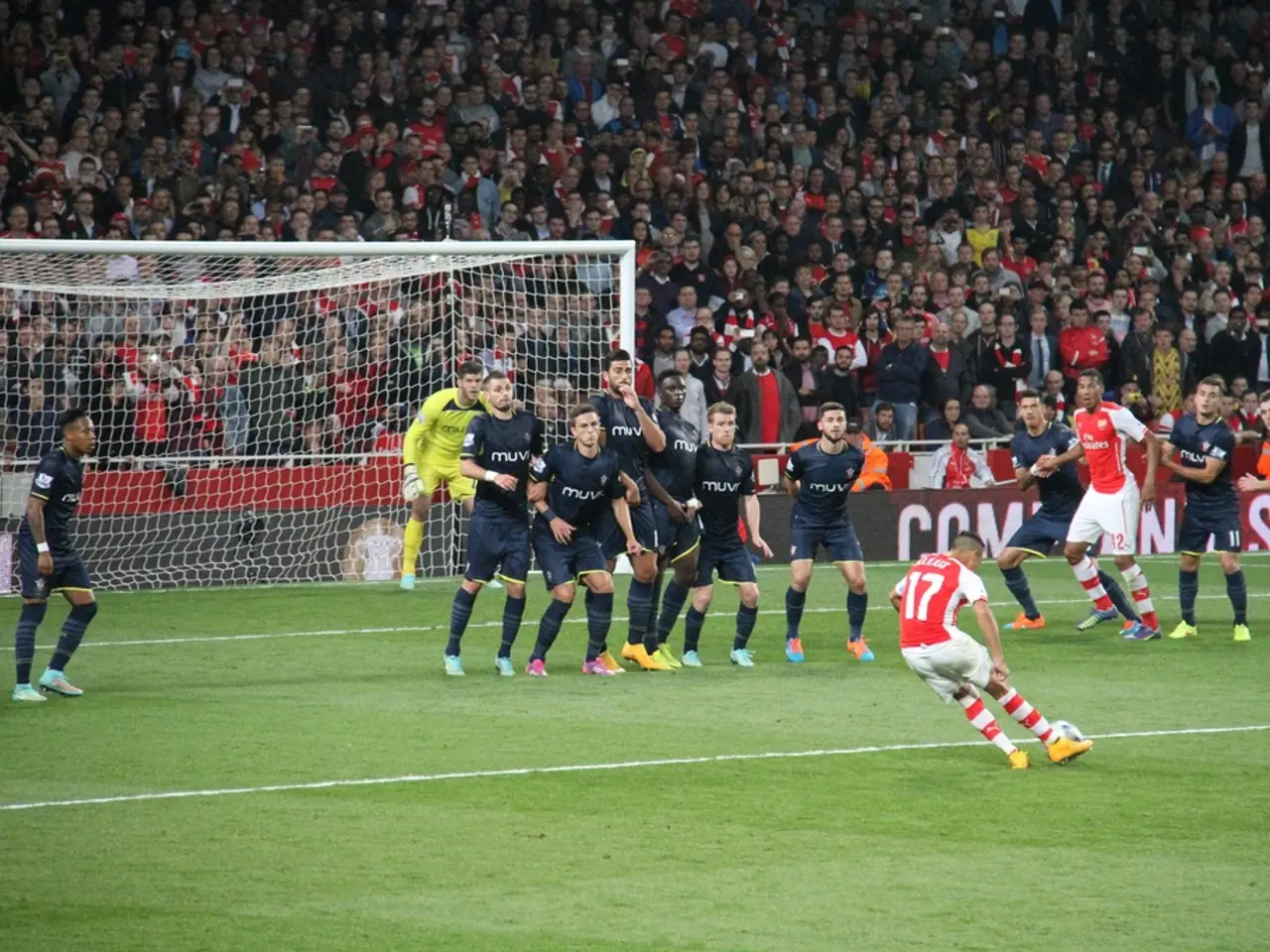Football Serves as a Conduit for Illicit Cash Transactions
Football, a global phenomenon with millions of players and fans, has unfortunately become a target for money laundering activities. This article explores the efforts being made by international organizations to combat this issue and protect the integrity of the sport.
The European Commission has taken a proactive stance, proposing measures to address cross-border corruption problems at the European level. They aim to monitor the implementation of EU anti-money laundering legislation in the sport sector [1]. The English Football Association has also established an extensive guidance for football clubs called "Money Laundering and The Proceeds of Crime Act" [2].
International organizations, such as the International Olympic Committee (IOC) and the United Nations Office on Drugs and Crime, are working together to combat money laundering in football. The IOC monitors betting activities on the 28 sports during the Olympic Games, while the UN estimates that about $140 billion is laundered through football annually [3].
The fight against money laundering in football is multifaceted. Legal prosecutions and enforcement have been a key strategy, with courts in countries like the United States prosecuting individuals and companies involved in bribery and money laundering related to football [4]. Financial intelligence and due diligence requirements, such as the identification and reporting of ultimate beneficial owners (UBOs) of companies, are also crucial in preventing concealed ownership used in laundering schemes [3].
Harmonized anti-money laundering (AML) regulations across the European Union have been introduced to curb money laundering and financing of terrorism. This includes enhanced supervision, enforcement, and transparency measures targeting all sectors, including football-related entities [2]. International anti-corruption cooperation is another essential component, focusing on transaction flows and corporate structures prone to abuse by politically exposed persons (PEPs) and actors in sports organizations [4].
Several banks implicated in laundering activities related to football have faced large fines, increasing compliance incentives throughout financial institutions connected to football financing [5]. The European Parliament has also adopted a resolution on the future of professional football in Europe, asking the Council of the European Union to develop and adopt measures in the fight against the criminal activities haunting professional football [6].
Transparency International recommends various strategies to counter money-laundering and the illegal financing of football clubs. These include establishing codes of conduct, introducing whistleblowing policies, setting up ethics committees, imposing sanctions, instituting training courses to raise awareness of fraud and corruption, ensuring accounts and records are audited, and conducting "fit and proper person" tests for potential club owners [7].
The Financial Action Task Force (FATF) has identified football, along with several other sports, as most vulnerable to money laundering [8]. In response, FIFA has established a special task force "For the Good of The Game" to investigate and combat threats to the integrity of football [9]. They have also adopted measures such as a clearing house for football transfers and an early warning system on betting activities [9].
However, the lack of global AML regulations in sport, excluding sports betting, contributes to the vulnerability of football to money laundering [10]. As the 2022 World Cup approaches, experts are focusing on the difficulties modern sports, particularly football, face with regard to money laundering [11].
In conclusion, the fight against money laundering in football is a complex and ongoing challenge. However, with the combined efforts of international organizations, regulatory bodies, and sporting associations, progress is being made to protect the integrity of the sport and ensure a fair and transparent playing field for all.
References: [1] European Commission. (2020). Proposal for a Regulation on the establishment of a European Union Agency for Asset Recovery. Retrieved from https://ec.europa.eu/info/law/better-regulation/have-your-say/initiatives/12522-Regulation-establishing-European-Union-Agency-Asset-Recovery
[2] English Football Association. (2017). Money Laundering and The Proceeds of Crime Act. Retrieved from https://www.thefa.com/football-rules-governance/football-regulatory-authority/money-laundering-and-proceeds-of-crime-act
[3] Financial Crimes Enforcement Network (FinCEN). (2014). Advisory - Football (Soccer) Corruption. Retrieved from https://www.fincen.gov/resources/statutes-regulations/advisory/advisory-football-soccer-corruption
[4] Organisation for Economic Co-operation and Development (OECD). (2018). OECD Recommendation on Combating Bribery of Foreign Public Officials in International Business Transactions. Retrieved from https://www.oecd.org/corruption/oecd-anti-bribery/oecd-recommendation-on-combating-bribery-of-foreign-public-officials-in-international-business-transactions.htm
[5] United States Department of Justice. (2017). Bank Hapoalim Settlement. Retrieved from https://www.justice.gov/opa/pr/israeli-bank-hapoalim-agrees-pay-875-million-resolve- Scheme-to-Evade-Sanctions-Through-United-States-Financial-System
[6] European Parliament. (2018). Resolution of 14 March 2018 on the future of professional football in Europe. Retrieved from https://www.europarl.europa.eu/doceo/document/RC-9-2018-0163_EN.html
[7] Transparency International. (2016). Recommendations for Countering Money Laundering and the Illegal Financing of Football Clubs. Retrieved from https://www.transparency.org/content/dam/transparency/documents/briefings/Briefing-Countering-Money-Laundering-and-Illegal-Financing-of-Football-Clubs.pdf
[8] Financial Action Task Force (FATF). (2019). FATF Public Statement - Money Laundering and Terrorist Financing Risks Associated with Professional Football. Retrieved from https://www.fatf-gafi.org/media/fatf/documents/recommendations/updated/FATF-Public-Statement-Professional-Football.pdf
[9] FIFA. (2019). FIFA's New Transfer System. Retrieved from https://www.fifa.com/football-governance/football-stakeholders/fifa-committee/news/fifa-s-new-transfer-system
[10] Financial Action Task Force (FATF). (2019). FATF Recommendations - Risk-Based Approach. Retrieved from https://www.fatf-gafi.org/topics/anti-money-laundering/documents/fatf-recommendations.html
[11] Financial Action Task Force (FATF). (2019). FATF Public Statement - Money Laundering Risks Associated with the 2022 FIFA World Cup Qatar. Retrieved from https://www.fatf-gafi.org/media/fatf/documents/recommendations/updated/FATF-Public-Statement-Money-Laundering-Risks-Associated-with-the-2022-FIFA-World-Cup-Qatar.pdf
The European Commission and the English Football Association are taking active steps to combat money laundering in football, by proposing and implementing measures to monitor the implementation of anti-money laundering legislation in the sport sector and establishing extensive guidance for football clubs respectively.
International organizations, such as the International Olympic Committee (IOC) and the United Nations Office on Drugs and Crime, are collaborating to address money laundering in sports like football, with the IOC monitoring betting activities and the UN estimating around $140 billion is laundered annually through this sport.




